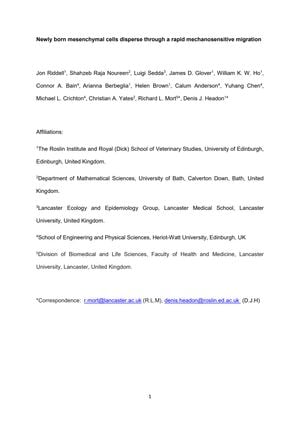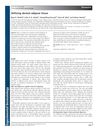Newly Born Mesenchymal Cells Disperse Through Rapid Mechanosensitive Migration
January 2023
in “
bioRxiv (Cold Spring Harbor Laboratory)
”

TLDR Newly born mesenchymal cells quickly spread out in response to tissue tension during early development.
This study investigates the dispersal of embryonic mesenchymal cells, which are crucial for the formation of structures such as hair follicles and intestinal villi. Through imaging of mouse and chicken embryonic skin, the researchers discovered that these cells exhibit a rapid migration phase for three hours during early interphase, immediately after cell division. This phase is characterized by high speed and persistence, allowing the cells to travel long distances and join dermal condensates. The direction and velocity of the cells' migration and division are influenced by the mechanical tension within the tissue. The findings highlight the importance of a specific cell cycle sub-phase, early G1, in the dispersal and recruitment of mesenchymal cells to areas where they contribute to key developmental processes.













